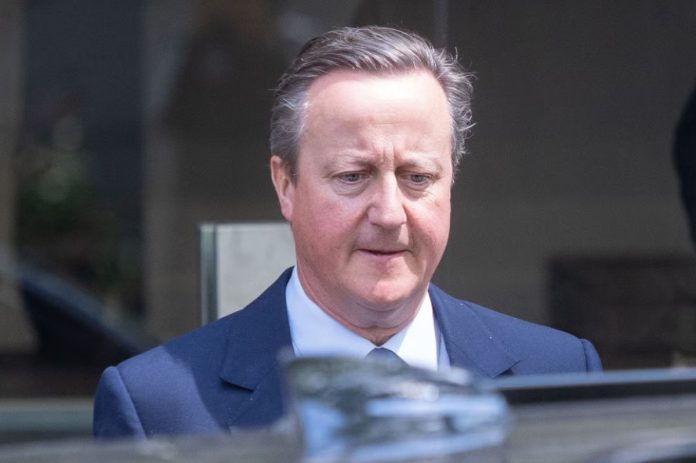Former Prime Minister of the United Kingdom, David Cameron’s return to the political arena, albeit in a different capacity, marks a significant attempt to reshape his tarnished legacy. When he was appointed foreign secretary, he repeatedly said – “Britain is back”.
Cameron’s appointment as foreign secretary was surprising for several reasons. Firstly, he is only the second former prime minister since the Second World War to later assume another Cabinet post (and only the fifth since 1900). And following his ennoblement as Lord Cameron shortly after his appointment in November, he is only the third Cabinet minister in recent decades to serve from the House of Lords.
However, his endeavors to rewrite history and carve out a new narrative face formidable challenges, rooted in the consequences of his tumultuous tenure as UK prime minister. Six years after leading the Conservatives back to power in 2010, Cameron stepped down as prime minister after his huge political gamble on a referendum about Britain’s membership of the EU backfired. Now, he is energetically seeking to rewrite his political legacy after being given a position in the Cabinet by Prime Minister Rishi Sunak.
Cameron’s political journey was punctuated by highs and lows, culminating in his resignation following the Brexit referendum debacle in 2016. Despite his efforts to rebrand Britain under his leadership, the fallout from his decision to call the referendum continues to reverberate, casting a shadow over his legacy.
The appointment of Cameron as foreign secretary under Prime Minister Rishi Sunak raised eyebrows and stirred controversy. While some viewed it as a strategic move to leverage Cameron’s experience, others questioned the wisdom of entrusting a pivotal role to a figure associated with divisive policies, such as his handling of UK-China relations.
Critics, including prominent voices within his own party, expressed skepticism regarding Cameron’s diplomatic acumen, particularly in light of his past engagements with China. The perception of Cameron’s approach as “naive” underscores broader concerns about the UK’s foreign policy stance vis-à-vis rising global powers.
Despite initial reservations, Cameron’s tenure as foreign secretary has been characterized by a flurry of diplomatic activity. His extensive travels and engagements signal a proactive approach to international relations, albeit against a backdrop of lingering skepticism regarding his policy agenda.
However, Cameron’s efforts to reshape UK foreign policy face internal resistance, exemplified by diverging views on key issues like asylum policy and human rights. His reluctance to embrace Sunak’s assertive stance on certain matters underscores persistent divisions within the government’s ranks.
Moreover, Cameron’s advocacy for a pre-Brexit migrant returns agreement with France highlights the complexities of navigating post-EU realities. While his proposal reflects a pragmatic approach to border management, the practicalities of implementation remain elusive in the current political climate.
In essence, Cameron’s return to the political fray symbolizes a quest for redemption amidst the lingering specter of past failures. While his renewed vigor and engagement offer glimpses of potential, the entrenched challenges of navigating a shifting geopolitical landscape and reconciling divergent policy visions loom large.
As Cameron grapples with the Herculean task of repairing his tarnished legacy, the verdict on his political resurgence remains uncertain. While history may offer redemption to some, the enduring legacy of Cameron’s tenure as prime minister serves as a cautionary tale of the perils of political hubris and the complexities of leadership in an era defined by uncertainty and upheaval.




